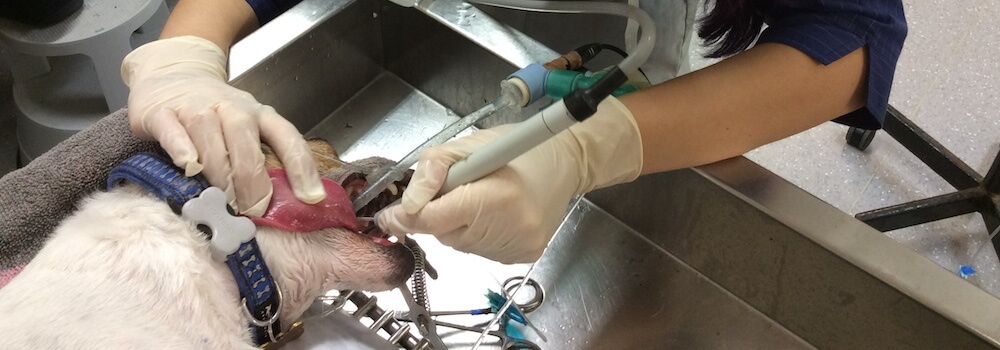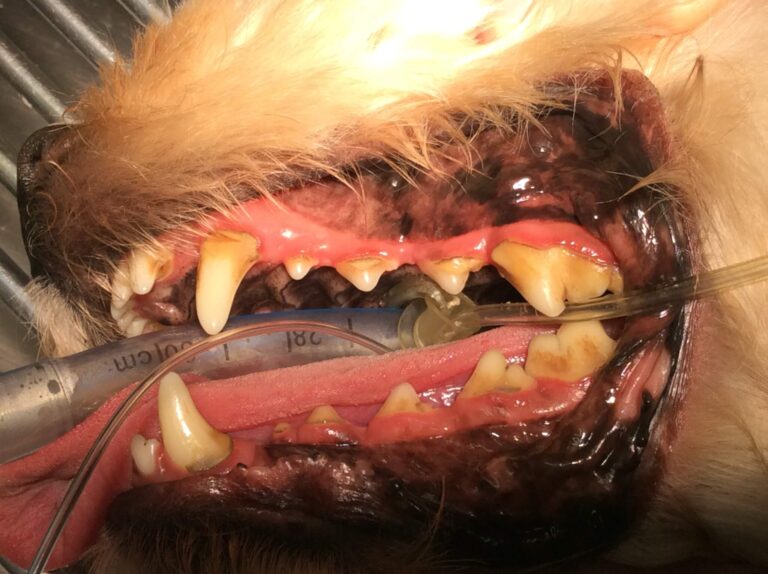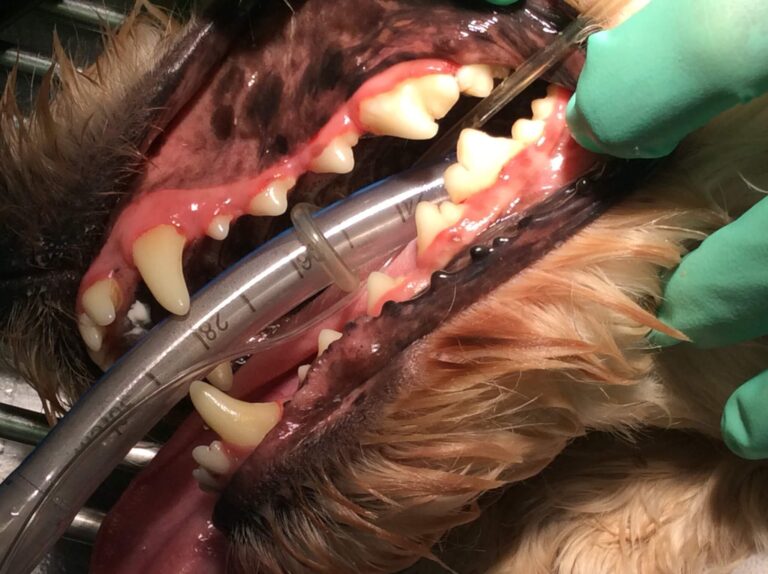
Dental
What kinds of dental problems do dogs and cats have?
Dental disease is as common in dogs and cats as it is in people. The most common form of dental disease in pets is periodontal disease. Tartar builds up and causes irritation of the gums around the base of the teeth. The resulting inflammation is gingivitis. The gums recede exposing the roots which leads to infection and ultimately tooth loss.
What does tartar do to the teeth?
If tartar is allowed to remain on the teeth, several things may happen. The tartar will mechanically push the gums away from the roots of the teeth. This allows the teeth to loosen in their sockets and infection to enter the root socket. The teeth will loosen and fall out or have to be extracted. Infection will accumulate in the mouth, resulting in gingivitis, tonsillitis, and pharyngitis (sore throat). Although antibiotics may temporarily suppress the infection, if the tartar is not removed from the teeth, infection will return quickly. Infection within the mouth will be picked up by the blood stream and carried to other parts of the body. This can cause kidney and heart damage.
What is involved in cleaning my pet’s teeth?
Proper cleaning of the teeth requires complete co-operation of the patient so plaque and tartar can be removed properly. For pet’s, general anaesthesia is required to thoroughly clean the teeth. Although anaesthesia always carries a degree of risk, the modern drugs in use in practice today minimise this risk, even for older dogs.
Depending on your pet’s age and general health status, your veterinary surgeon may advise a prior blood test to evaluate liver and kidney function and general health status of the patient.
What steps are involved in the cleaning process of your pet’s teeth?
Scaling
To remove tartar above and below the gum line. This is done with hand instruments and ultrasonic cleaning equipment.
Polishing
This smooths the surface of the teeth, making them resistant to additional plaque formation.
Extractions
In severe cases, some tooth extractions may be required.

Before


